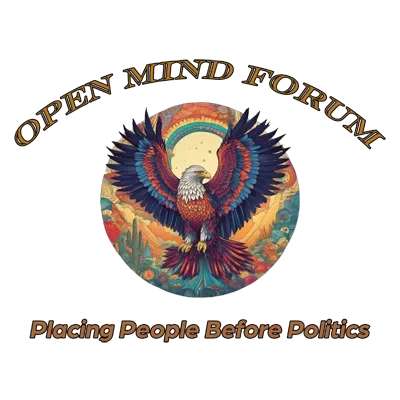A Critique of Ontology, Subjectivity, and Truth
Introduction to “Levinasian Ethics”
“Levinasian Ethics & Responsibility” presents a groundbreaking approach to philosophy, shifting focus from ontology to ethics and emphasizing the role of personal responsibility in human relationships. Emmanuel Levinas claims that moral duty begins in face-to-face encounters, where the “Face” of the Other elicits an immediate ethical obligation. By re-framing ethics as foundational, Levinas challenges traditional Western notions of selfhood, truth, and being. Although “Levinasian Ethics” offers profound insights, critics have raised questions about its limitations in practical applications and its impact on subjective agency.
The Face and Responsibility in Levinasian Ethics & Responsibility
Levinasian Ethics & Responsibility begins with the encounter of the Face, an event that disrupts one’s subjective desires and places responsibility at the forefront. The Face, according to Levinas, cannot be fully understood or objectified; instead, it commands a response that transcends self-interest (Critchley, 2002).

For example, in witnessing another’s suffering, Levinas believes one cannot ignore or rationalize the Other’s needs. This ethical impulse—compelled by the Face—highlights the depth of human vulnerability and calls for immediate compassion. This is the core of Levinasian Ethics & Responsibility. Critics argue, however, that Levinas’ demand for boundless responsibility fails to consider the practical limitations of the self. Perpich (2008) questions how one can balance the Levinasian call for infinite ethical responsibility with finite resources, particularly in fields like healthcare where practitioners face constant ethical dilemmas and resource constraints.
Interiority, Exteriority, and the Tension in Levinasian Ethics & Responsibility
Levinasian Ethics & Responsibility also redefines human identity through the interplay of interiority and exteriority. Levinas argues that our encounters with others shape our subjectivity more than any internal self-reflection. In Totality and Infinity, he suggests that human identity exists through exterior relationships, not isolated introspection (Levinas, 1969). However, this emphasis on exteriority risks diminishing personal agency. Derrida (1978) critiques this view, arguing that Levinas’ outward-facing ethics might suppress the self’s interior life, ultimately creating a passive subject overly dependent on external relationships. For instance, if one’s moral identity constantly revolves around others, can one still claim an individual sense of purpose or autonomy?
Truth and Subjectivity in Levinasian Ethics

Levinasian Ethics challenges the conventional view of truth by linking it to ethical responsibility rather than factual accuracy or rationality. Levinas sees truth as inherently relational, where meaning emerges from encounters with others rather than objective or absolute knowledge (Critchley, 2002). In this sense, the “truth” of Levinasian Ethics lies in acknowledging the Other’s presence and needs, transcending self-centered perceptions. For example, Levinas would argue that understanding the plight of marginalized communities requires engaging with their lived experiences, not merely theorizing their struggles. Critics, however, find this concept of truth challenging to measure or apply consistently. If truth is based solely on subjective encounters, critics question whether Levinasian Ethics risks undermining shared standards for justice and ethics. Perpich (2008) warns that without objective criteria, Levinasian truth may become too variable, potentially leading to ethical relativism.
Ethics Beyond Ontology in Levinasian Ethics
Levinasian Ethics elevates ethical responsibility above ontology, shifting the focus from understanding existence to responding morally to others. This shift redefines what it means to “know” another person, moving from a traditional understanding of truth to a relational engagement. Levinas suggests that the primary purpose of human life is not self-knowledge or fulfillment but an ethical commitment to others. Yet, critics contend that Levinasian Ethics remains overly idealistic and impractical. In settings like social justice movements, Levinas’ call for limitless responsibility could become paralyzing. For instance, activists advocating for broad societal change often require actionable goals rather than abstract moral imperatives. Levinasian Ethics & Responsibility thus confronts a major tension: its inspirational call for responsibility may lack pragmatic guidance for complex ethical issues (Perpich, 2008).
Practical Implications and Challenges of Levinasian Ethics & Responsibility
The practical implications of Levinasian Ethics present both inspiration and challenges. For Levinas, ethical duty remains limitless, which emphasizes the human capacity for compassion and altruism (Critchley, 2002). However, real-world applications of Levinasian Ethics reveal its limitations. For example, in legal systems, judges and lawmakers must balance empathy with fairness. Levinasian Ethics would prioritize the unique circumstances of each case, potentially disregarding legal consistency. In this way, Levinas’ theory suggests a path for reform but may also struggle against the need for objective standards in governance.
Concluding Thoughts on Levinasian Ethics
Levinasian Ethics & Responsibility revolutionizes ethical thought by centering the moral response to others. While inspiring, its demands may prove unsustainable, especially when balancing individual needs with societal obligations. Levinas’ approach raises crucial questions about truth, responsibility, and the limits of ethical obligations. Despite its limitations, Levinasian Ethics continues to challenge the boundaries of human responsibility, inviting us to reimagine our relationships and moral duties in a complex world.
Sources Cited
Critchley, S. (2002). Ethics, Politics, Subjectivity: Essays on Derrida, Levinas, and Contemporary French Thought. Verso.
Derrida, J. (1978). Writing and Difference. University of Chicago Press.
Levinas, E. (1969). Totality and Infinity: An Essay on Exteriority. Duquesne University Press.
Perpich, D. (2008). The Ethics of Emmanuel Levinas. Stanford University Press.
Suggestions for Future Reading
- Ethics and Infinity by Emmanuel Levinas – An accessible overview of Levinas’ ethical philosophy.
- Otherwise than Being or Beyond Essence by Emmanuel Levinas – Explores Levinas’ ideas on ethics and metaphysics in greater depth.
- Writing and Difference by Jacques Derrida – Offers critical perspectives on Levinas’ ethics, especially regarding subjectivity.
- Ethics as First Philosophy edited by Adriaan T. Peperzak – A collection of essays on Levinas’ emphasis on ethics over metaphysics.
- The Ethics of Emmanuel Levinas by Diane Perpich – Examines the practical limits and applications of Levinasian Ethics.
- Levinas and the Cinema of Redemption by Sam B. Girgus – Analyzes how Levinasian Ethics appear in film narratives.
- Ethics and the Limits of Philosophy by Bernard Williams – Contrasts Levinas’ ethics with alternative theories.
- Radical Responsibility by David Loy – Discusses Levinasian concepts of responsibility across different philosophical traditions.
- Totality and Infinity by Emmanuel Levinas – Levinas’ foundational text on exteriority and ethics in human relations.
Disclaimer: The images and videos in this post are AI-generated creations, intended purely for illustrative and conceptual purposes. They are not real-life representations and should not be interpreted as such. Their sole purpose is to offer a visual means of exploring the topics discussed in this post.




